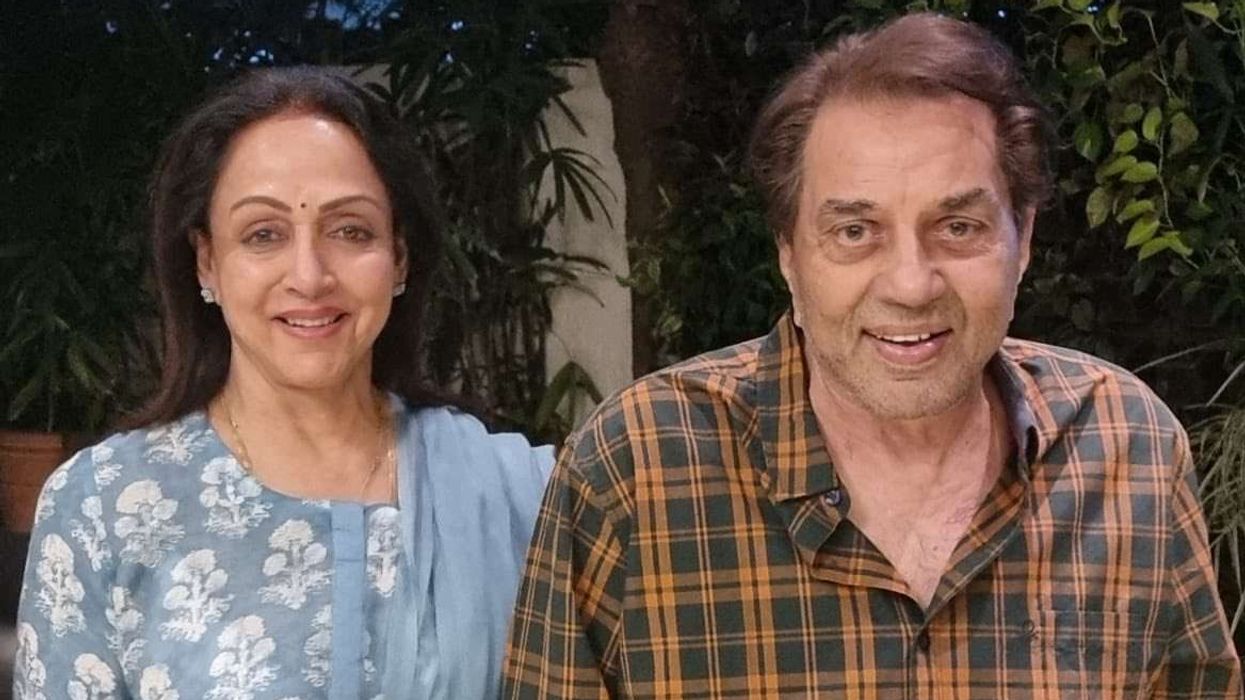ASK anyone who has met or worked with Mohit Bakaya and they use words such as ‘fiercely intelligent’, ‘fearsomely rigorous’ and ‘frighteningly astute’. Bakaya is a new entry to the GG2 Power List, and he is probably unknown to those outside radio or broadcasting. In July 2019, the BBC appointed him the controller of Radio 4.
“What I know of him is that he is an extraordinarily brilliant radio person. He has a deep knowledge and a direct manner,” says Yasmin Alibhai-Brown, the award-winning columnist with The i, and a professor at Middlesex University. “I think he’s the right man for the job. I’ve delivered programmes for him, and he’s a terribly, terribly tough commissioning editor, which is a very good thing. So, he would really test your ideas in ways I’d never had tested before. It’s like being in an oral exam. He understands radio, he understands rather complex ideas, whether he says yes or no. So, if you are commissioned, then you know that he really believes in your idea.”
That incisive intellect and knowledge of radio and, in particular Radio 4, is born of Bakaya working his way up through the medium and the corporation. He joined the BBC as a production trainee in 1993, worked on Radio 4’s arts programme Front Row, became editor of Radio 3’s Night Waves, and in 2008, Bakaya was made commissioning editor of factual for the station.
Roger Mosey, master at Selwyn College, Cambridge, was the editor of Radio 4’s Today programme, controller of Five Live and headed the BBC’s brilliant coverage of the 2012 Olympics. He knows what is needed to run a successful radio station and believes Bakaya is the right choice.
“Radio 4 has been a successful station in a fractured multi-channel world. With an audience of 10 to 11 million listeners a week, it’s a place for radio news and culture, and he can lead that, so that’s very exciting for him,” says Mosey. “The important thing about Radio 4 is that you’re steeped in its values, and Mo has worked there a long time. You have to like every element of it. The drama, the news, the culture, the comedy and the rest of it. Mo, albeit being largely a factual commissioner, has been at the Radio 4 centre for over a decade so he’ll get all that, and he is instinctively a Radio 4 person.”
But what is the ‘Radio 4 person’? According to the BBC, the average listener tunes in for 11 hours a week; 51 per cent are female; and 75 per cent fall into the ABC1 demographic with an average age of 56, so definitely middle-class professionals. Historically, Radio 4 is perceived as super-serving its white listeners and not embracing ethnic minority Britons. But Patrick Younge, head of the independent production company, Sugar Films, and once the most senior ethnic minority in BBC production, believes Bakaya’s predecessor, Gwyneth Williams, changed that perception.
“If you look at the last four or five years under Gwyneth, Radio 4 is already much more diverse, and I’m sure he’ll build on that.” But Younge questions whether embracing different racial groups is Bakaya’s biggest challenge.
“To me, it comes down to what you mean by diversity,” he said. “One of Radio 4’s issues is social class. So how will he address class, and will he address regionality? One of the dangers is that it’s very easy to get sucked into the numbers game, how many of these and how many of those, rather than a quality game. You can put a black person on Today, and you’ll massively increase the number of BAME presenter appearances. But if the news agenda doesn’t change, then you’ve not changed that much.”
Bakaya will go down in broadcasting history as a pioneer because he is the first ethnic minority to head a mainstream radio station or TV channel in the UK.
“It is surprising it has taken so long to get a controller of colour, and there have been many talented black and Asian people in the BBC who could and should have got to that level,” observes Mosey. “So, I think we should take a moment to celebrate what Mo has achieved, and I’m sure he’ll be absolutely brilliant at it. Mo is a major talent and my only surprise is that he didn’t get it sooner.”
Alibhai-Brown agrees, and she also points out that Bakaya may not wish to define himself by his ethnicity, and he has every right to do so.
“Very few of us south Asians listen to Radio 4. Internally there are certainly more south Asian presenters and producers in Radio 4 than there used to be,” she continues. “Radio 4 wants more black and Asian listeners, which it singularly lacks. My view is that we need to look at this as a brilliant achievement, regardless of who he is. What I do see is an incredibly confident man.”
Bakaya will need that confidence because anyone who has worked in the BBC knows it is an incredibly difficult organisation to navigate. To succeed, one needs to know how it works. Younge eschews any idea that Bakaya needs advice about how to navigate the BBC.
“Mohit knows how to navigate the BBC, having risen to his current position. But it’s lonely at the top, especially if you’re an ethnic minority or a woman, and he has to come to terms with that. He also has to make the choice of whether he stays in radio, where he’s a significant player. Or does he extend himself into other areas of the BBC? That’s one of the interesting things I’m looking forward to seeing.”
In 2010 a BBC Trust survey concluded that Radio 4 should consider: “Finding opportunities to engage new and younger listeners (away from its core 55-75 demographic)” and “Countering any perceptions of the station as ‘essentially white, middle class and English’ by emphasising examples of diversity (e.g. the mix of religions covered by Thought for the Day).”
Mosey championed diversity throughout his career in the BBC, ensuring he mentored and actively look for talented reporters, producers and executives, unafraid to let his bosses know the corporation’s weaknesses. “Navigating any organisation is the same, no matter your ethnicity. You have to get the Radio 4 audience to think that you’re on their side. The listeners really treasure the network, and they don’t want someone who’s going to make radical changes or do it in a different way. So, change has to be evolutionary, rather than revolutionary.”
Today, Bakaya must also consider new technologies and the different ways in which listeners engage with his station. The digital age of smart phones, listen-again apps and on-demand programmes means he has to persuade a new generation of listeners to embrace a station with a reputation of being male, pale and stale. So, what could success look like?
“Any controllership job is a combination of audiences and Radio 4 listeners tune in to the radio and other platforms such as podcasts. For Radio 4 it’s also about quality and awards. It’s about Radio 4 listeners, it’s about feeling that the station is worth their licence fee,” concludes Younge. “It is a very demanding listening base who will not be slow in coming forward if they feel their needs aren’t being catered for. If he’s able to extend that base, and it’s about more than race, even better.”







